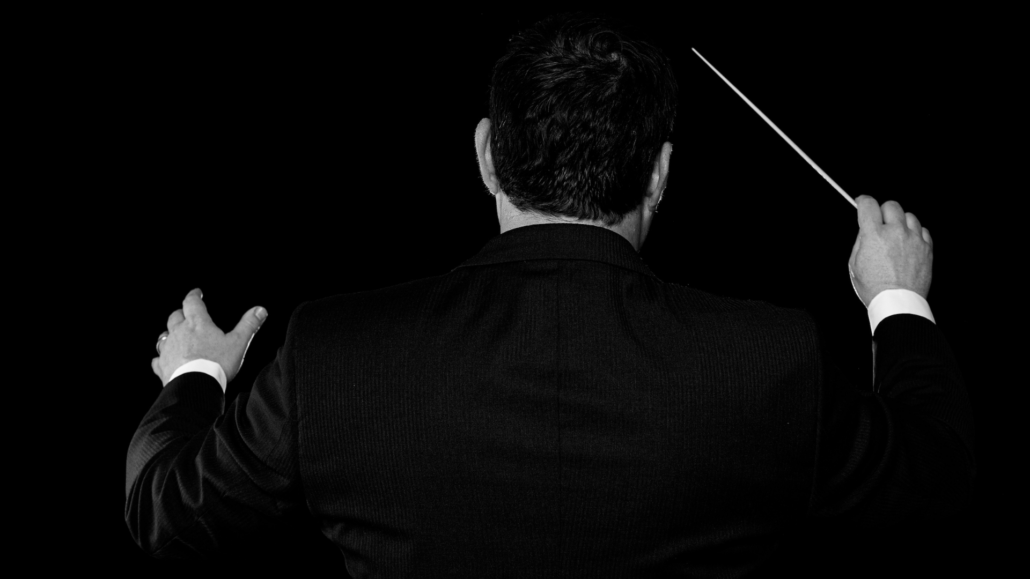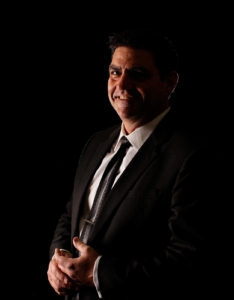AUGUST 8, 2023
VICTORIA SYMPHONY AT THE MOVIES
The Victoria Symphony welcomes you to a night at the movies featuring music from some cinematic classics. Principal Pops Conductor Sean O’Loughlin brings the silver screen to life, and then you’ll have a chance to mix and mingle with the orchestra onstage.
The summer of 2023 saw the opening of Indiana Jones and the Dial of Destiny, the fifth and final film in the long-running adventure franchise. For forty years, the star, Harrison Ford, has had the Raider’s March playing in his head. “It follows me everywhere…but I love it,” he said in an interview on Britain’s Classic FM, “and I’m happy to march to that tune.” The director of the latest episode, James Mangold, added his praise for John Williams’s lifelong dedication to film music. “John’s music is inspired by the work of Miklós Rózsa, Erich Korngold and all these incredible composers who composed golden age scores for movies, from Spartacus to Robin Hood using the orchestra – using the full orchestra…I think he’s been an ambassador for orchestral music to the world,” Mangold said. “His movie scores, Star Wars, Indy, Superman – I mean, all of Stephen [Spielberg]’s movies – have been so popular, but what they’ve also done, and did to me, as a young man, is they led me to classical music, is they led me to the orchestra. I grew up in a world of rock and roll and John was my emissary or my ambassador, into the glory of classical music.”
John Williams is in good company with the other composers represented in today’s program.
Leonard Bernstein has been described as “one of the most prodigiously talented and successful musicians in American history.” He wrote symphonic works, ballets, vocal, choral and vocal compositions, chamber music and solo pieces for piano. Among his theatrical compositions, he is best know for West Side Story. It was first adapted for film in 1961, with Richard Beymer and Natalie Wood cast as Tony and Maria, the star crossed lovers. In 2021, director Steven Spielberg took a new look at the classic musical, this time with Ansel Elgort and Rachel Zegler in the leading roles. Zegler was 16 when she responded to the open casting call, submitting videos of herself singing “I Feel Pretty” and “Tonight.” She earned her film debut from amongst 30,000 applicants with her memorable rendition of the latter song, heard in the balcony scene. Leonard Bernstein’s melody sounds as fresh today as it did more than 60 years ago.
The Italian composer Ennio Morricone created music for more than 400 movies, earning and Honorary Academy Award in 2007 for his contributions to the art of film music. He also won an Oscar in 2016 for Quentin Tarantino’s revisionist Western, The Hateful Eight, an echo of his earlier work in the 1960s for Sergio Leone’s “Spaghetti Westerns” such as The Good the Bad and the Ugly. His wrote Gabriel’s Oboe as the main theme of the 1986 film The Mission, which starred Jeremy Irons and Robert De Niro. In the story, an eighteenth-century Jesuit and a Spanish trader attempt to protect a native tribe deep in the jungles of South America, with tragic results. Morricone’s score earned an Oscar nomination.
Imagine Alfred Hitchcock’s shocker Psycho without Bernard Herrmann’s chilling music. Right from the opening Prelude and with minimal forces of just strings, he created an atmosphere that set audiences on the edge of their seats. Hitchcock recognized this, saying that “Thirty-three percent of the effect of Psycho was due to the music.” It is ironic that the famous shower sequence was originally intended to be completely silent! On completion of the film, Hitchcock doubled the composer’s salary as his thanks.
Director Sydney Pollack’s Oscar-winning film Out of Africa featured Meryl Streep and Robert Redford in a tale of romantic and cultural entanglements set in colonial Kenya in the early 20th century. It draws on the memoirs of a Danish baroness and businesswoman, Karen Blixen, out of her element in the African wilderness, but entranced by its beauty and by the love of a free-spirited hunter and adventurer, Denys Finch-Hatton. The film’s music director, John Barry, drew on music of Mozart for several scenes that showcase the natural beauty of the landscape. Come along for a flight, to the accompaniment of the slow movement from Mozart’s Clarinet Concerto in A Major.
“The Dean of American composers,” Aaron Copland, was known for bringing a distinctly American sound to the world of classical music. His incorporation of jazz and folk music into his compositions, and his popular contemporary ballets proved very popular to a broad audience. In the late 1930s, Copland wrote scores for three films: The City was a pioneering short documentary about urban planning, produced for the 1939 New York World’s Fair. The other two projects were Hollywood adaptations of (then) recent literary hits: Thorton Wilder’s play Our Town—a generational drama set in rural New Hampshire—and John Steinbeck’s novella Of Mice and Men, about two displaced ranch workers in Depression–era California. He subsequently re-orchestrated parts of all three scores to create Music for the Movies, a suite in five movements for small orchestra. In his autobiography, written with Vivian Perlis, Copland recounted the source of the five movements.
“New England Countryside” is based largely on the title music of The City; “Barley Wagons” originally accompanied an outdoor landscape in Of Mice and Men; “Sunday Traffic,” also derived from The City, serves the purpose of a scherzo in the suite; “The Story of Grover’s Corners” was developed from Our Town—it was a kind of theme song in the film; and “Threshing Machines” was compiled from several dramatic scenes in Steinbeck’s story. Music for the Movies is dedicated to Darius Milhaud, whom I considered a pioneer in the field of film music.
The contemporary song-writing team of Benj Pasek and Justin Paul (also known for La La Land and Dear Evan Hansen) contributed their talents to The Greatest Showman, an original movie musical based on the life of P.T. Barnum, the creator of Barnum & Bailey Circus as well as the lives of its stars. With Hugh Jackman in the lead role, it opened at Christmas 2017 and had an astounding eight month run in theatres. It was propelled by an award-winning soundtrack, from which Sean O Loughlin draws five highlights: The Greatest Show, A Million Dreams. Come Alive, Rewrite the Stars and This is Me. The latter hit is an anthem of acceptance and inclusion from those once viewed as oddities or freaks: “I’m not scared to be seen / I make no apologies, this is me!”
Notes: Matthew Baird




 Sean O’Loughlin, conductor
Sean O’Loughlin, conductor